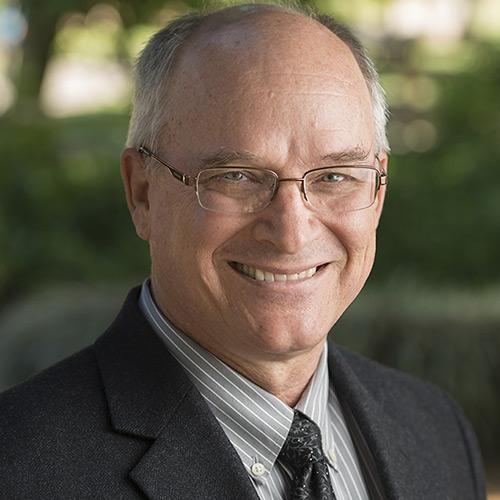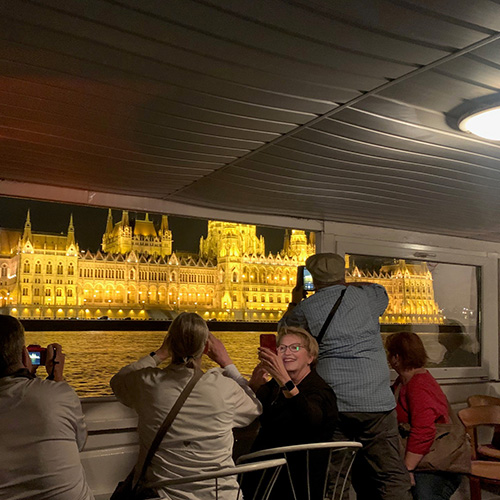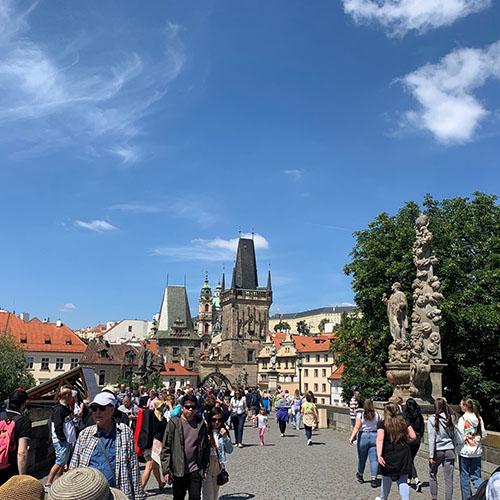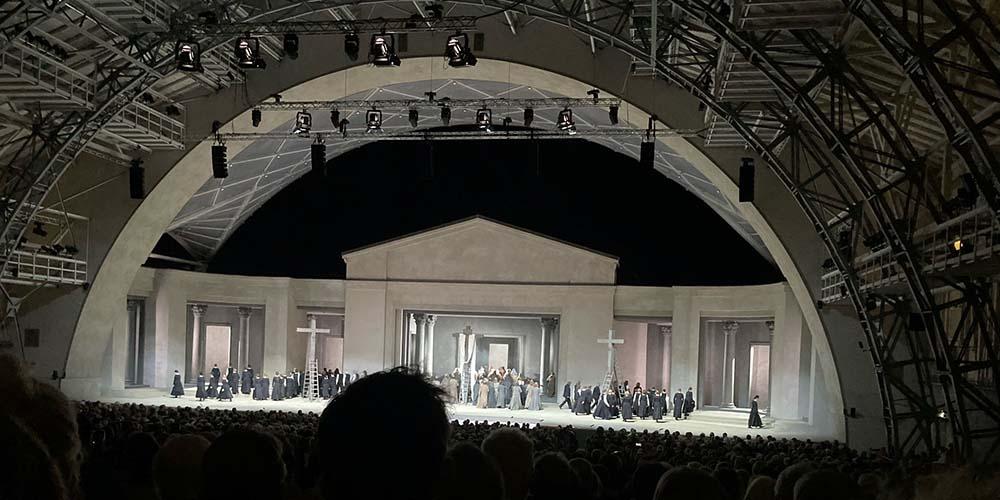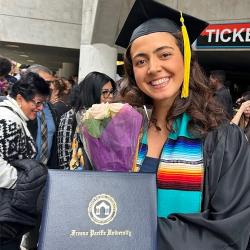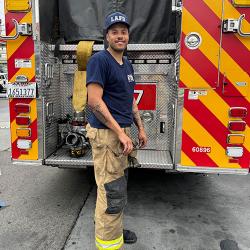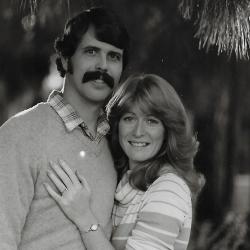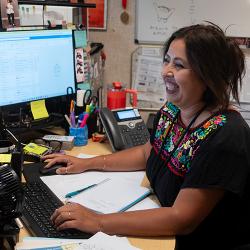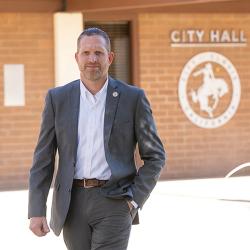The summer of 2022 was a difficult one for travel. It was the first time we could travel freely since COVID. We left in mid-June for a tour with eighteen alums and friends through Central Europe, specifically to three cities: Budapest, Vienna and Prague. We left the weekend that London’s Heathrow Airport made international news with reports of lost and abandoned luggage, lack of workers to transfer luggage and staff shortages, among other issues.
We took advantage of a long layover in London by taking our small group on a whirlwind tour of the city—taxi ride (a must), Buckingham Palace, Westminster Abbey and Parliament and the Tower—then back to the airport to wait several more hours for our flight to Budapest. Why not see London if you just happen to get stuck in the airport for almost 24 hours?
In Budapest we did several things to get a feel for the city and Hungary—a tour of the city on both sides of the Danube (the Buda side and the Pest side) to see the Parliament buildings that dominate the river scene, and the government and business districts. There are statues of Presidents Reagan and George H. W. Bush in one of the central squares in recognition of their role in the end of the communist governments. I asked if the U.S. or the Hungarians put these up. The Hungarians, our tour guide explained, in gratitude for their efforts.
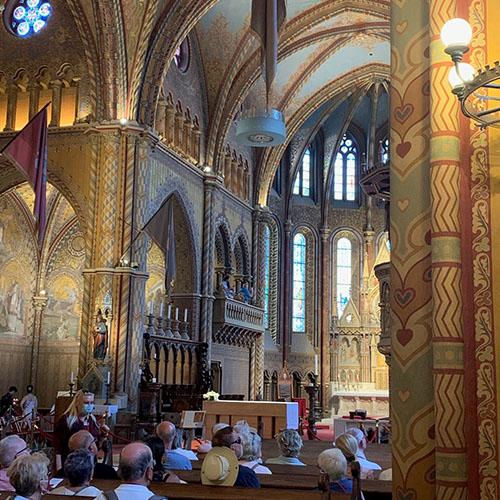
|
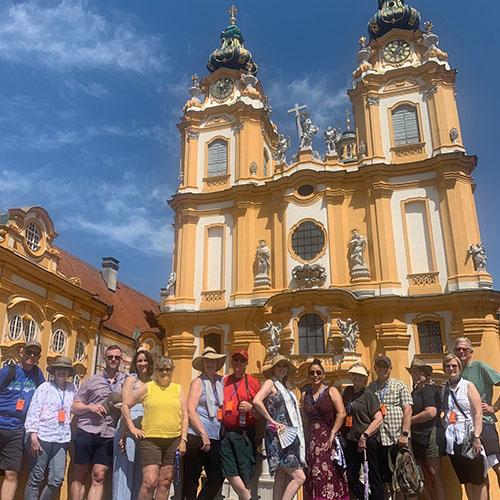
|
Later that day we toured the building where political prisoners were tortured by the Soviet-led government—a sobering and heavy couple of hours. Across the river was the Matthias Church, with still-visible remnants of the Ottoman occupation and rule of the Balkans. Budapest was the northernmost city of Ottoman rule and the staging site for efforts to conquer Vienna in the sixteenth and eighteenth centuries. (I know, I sound like a history professor… occupational hazard.)
Next, we traveled to Vienna, one of the truly great cities of Europe, with its multiple palaces (we saw all of them!). The Habsburg monarchs loved music, and Vienna has since been a city of music with concert halls dedicated individually to concerts, opera and other forms of performance. Our tour guide, Viennese herself, arranged for us to attend a concert in one of the major venues, the Musikverein Karlsplatz. We also took another trip on the Danube to Melk Abbey, one of the most influential monastic sites in Europe.
